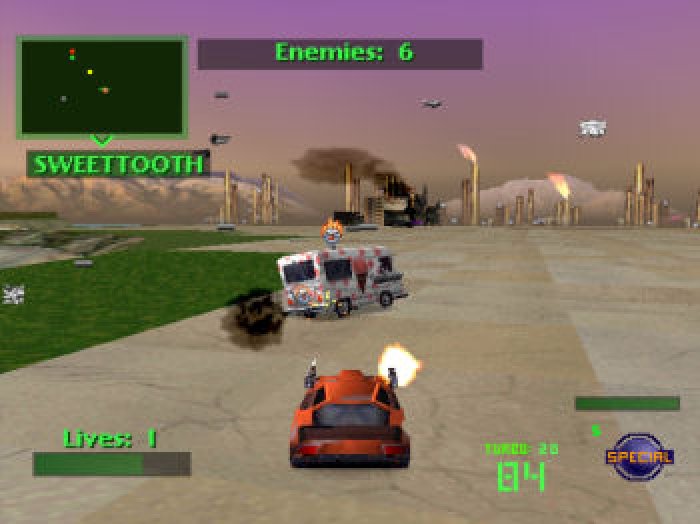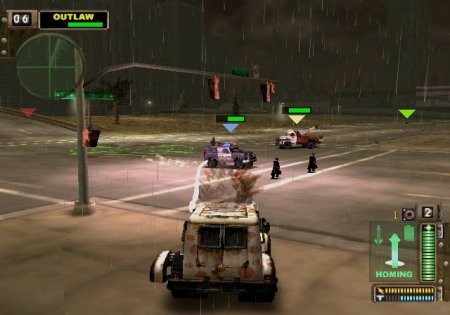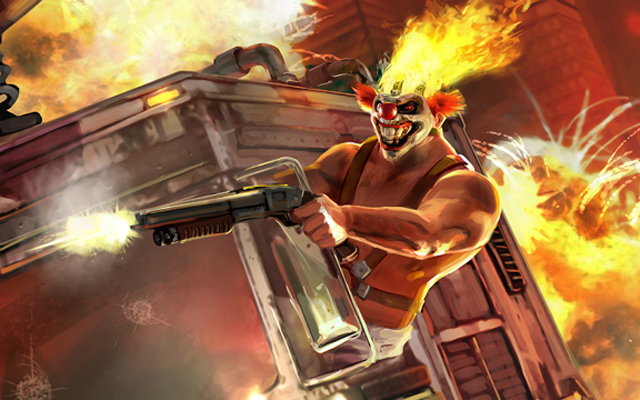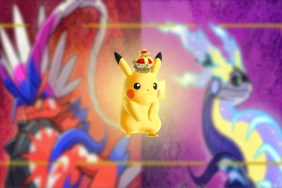What's better than cars, missiles, and explosions? That's likely what David Jaffe was thinking when he came up with Twisted Metal nearly two decades ago. To show our respect for the longest-running PlayStation exclusive, we've decided to take a trip back down memory lane just in-time for the the next release coming this month, recalling some of the series' most explosive moments while we're at it.
So what is Twisted Metal? While on one hand you could just label it a "vehicular combat" series, that wouldn't do it justice. Beneath all of the explosions and squealing tires is a game with a lot of heart. There's a simple story delivered, but a diverse cast of creepy characters that make the journey to Calypso interesting. Whatever Twisted Metal is, I like it, and judging by its sales of over five-million across seven games, a lot of other people do too.
When the first Twisted Metal metal came out in 1995, reception was all of the place. While we gave it a solid B+, a few other sites shunned it for its already-dated visuals and weak single-player mode which lasted fewer than two hours. Myself and plenty of other people didn't care, though, as being able to drive down city streets at break-neck speeds while firing homing missiles was enough to overshadow all of its shortcomings. I'm sure a lot of the people in the industry were thinking, "Now, why didn't we think of that!?" when it first came out. Truth is, Twisted Metal is awesome, and all it needed was a few maps and vehicles to make it one of the best split-screen games of its time.

While the original release didn't score particularly well, Sony saw its commercial success as a reason to use it for a holiday bundle. Whoever thought that bundling a game about battling to the death in a PlayStation package for the holidays was either insane, a genius, or both. My parents purchased the bundle for me on Christmas, and since it was the first true split-screen multi-player game I had ever played, it holds strong memories for me. I spent hours trying out all of the cars and seeing what each of them offered, similar to what many fighting-game fans experience. It was the first time since Mortal Kombat came out in 1992 where I found pleasure in kicking ***. Doing fatalities with Scorpion was cool, but launching off a ramp before barraging a group of vehicles with Mr. Grimm's Death Spawn was too awesome to describe.
Sony saw a lot of potential for the series and almost immediately began work on Twisted Metal 2. When it finally came out in 1996, it sold extremely well despite its mature image, and would become the best-selling Twisted Metal on the original PlayStation. It added new contestants including Axel, Grasshopper, Mr. Slam, Twister, and Shadow. Sony also chose to use real-world settings for its locations like Paris, Moscow, and Los Angeles. Who doesn't want to drive around Paris in a giant semi-truck crushing cars in their path? The maps were also a lot larger and had stronger design with plenty of death traps and secret locations.
Both Twisted Metal III and Twisted Metal 4 would follow the second release in yearly cycles. At that point, 989 Studios took over the development for the series after some corporate changes at Sony, and David Jaffe was moved from Designer to Director. You might know 989 Studios for games like Syphon Filter, 3Xtreme, and Jet Moto 3, so you would almost bet that these two Twisted Metal games would be killer releases. Unfortunately, Twisted Metal III and Twisted Metal 4 didn't do so hot, and while they added new locales and characters, they didn't innovate enough to spark interest.

It wasn't until Twisted Metal: Black released on the PlayStation 2 a couple of years later that the series really took off. Incognito Entertainment returned the series to its roots and churned out something that only nightmares could imagine. It was extremely dark, with intriguing narratives for each of the game's interesting characters. The gameplay was so well designed for its time that the game managed to win several Best Shooter awards in the year 2001. Not bad for a game that's only half-shooter.
Following the stellar release of Twisted Metal: Black, there was a huge void in the industry. There would be a PlayStation Portable release titled Twisted Metal: Head-On in 2005, but it didn't do well commercially. It was a direct continuation of Twisted Metal 2, as the development team deemed it better to just ignore the fact that Twisted Metal III and Twisted Metal 4 existed. It was the first of the series to include an online-mode from day one which would be one of its only major selling points, as it was considered much more of a tribute to the original two games than it was a major new release for the series.
There's something extremely mysterious about Twisted Metal that makes it so difficult to put down. Sweet Tooth is cool, gambling your soul to Calypso is even cooler, and being able to blow cars up to tracks from Rob Zombie just sends the cool-dar to its limits. We've been waiting a long, long time for another Twisted Metal, and the cancelation of Twisted Metal: Harbor City has only made it worse. But now a new Twisted Metal is upon us, and just like with Twisted Metal: Black it's the first release for a new series of console, and has had several years of careful development behind it. I'm locked and loaded for the next game and hopefully you are too.







